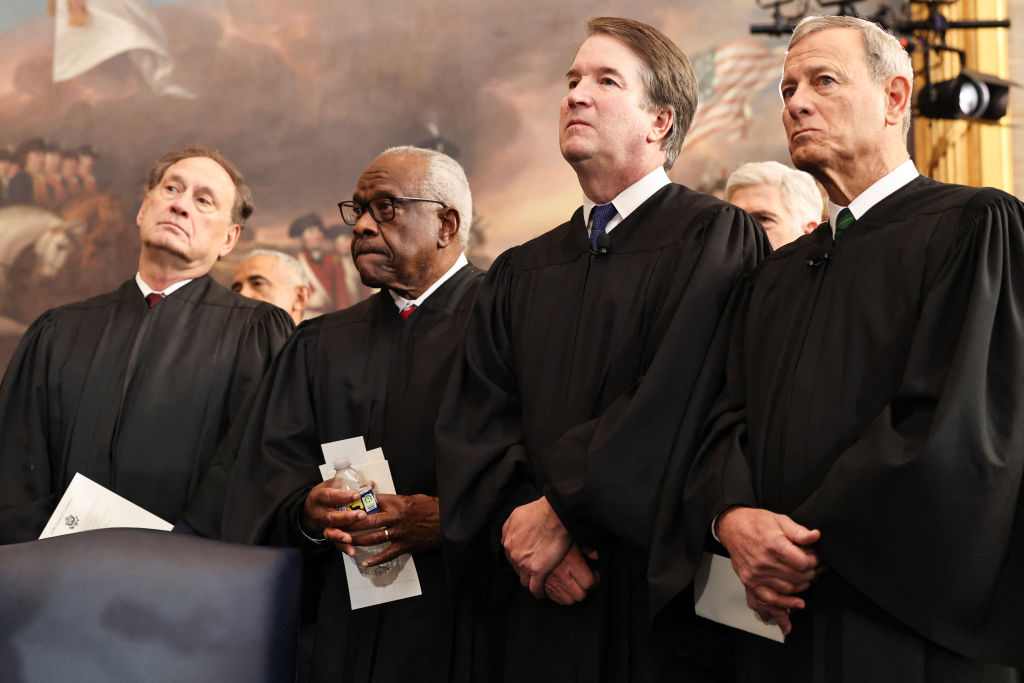Supreme Court declines to hear cases on gun laws, American Indian sacred site, and other controversial issues


The Supreme Court on Monday morning issued a long list of orders from the justices’ private conference on Sept. 29. At that conference, sometimes dubbed the “long conference,” the justices considered the large group of petitions for review that had accumulated over their summer recess, which officially ended on Oct. 6. The justices added five new cases to their 2025-26 docket on Friday. As expected, Monday’s 39-page order list did not add any additional cases to the court’s docket. Instead, the court denied review in a host of cases, ranging from a challenge by Jeffrey Epstein associate Ghislaine Maxwell to her prosecution to the use of a police dog to sniff the interior of a car for drugs.
The justices also invited the U.S. solicitor general to file briefs with the government’s views on three cases. In Cotter Corp. v. Mazzocchio, the justices have asked the government to weigh in on whether federal nuclear safety regulations trump state laws in a lawsuit brought by two sisters who claim to have developed blood cancer as a result of exposure to radioactive waste material. In RiseandShine Corp. v. PepsiCo, the government will provide its views on whether a trademark’s strength – that is, its level of distinctiveness – is a question of law or fact in a determination of whether an alleged trademark user’s use is likely to cause confusion under federal trademark law. And in Spain v. Blasket Investments, U.S. Solicitor General D. John Sauer will weigh in on questions relating to arbitration and the Foreign Sovereign Immunities Act, which generally shields foreign governments from lawsuits in U.S. courts. There is no deadline for the solicitor general to file his briefs.
Kelsey Dallas covered the Supreme Court’s denial of review in the case of Jeffrey Epstein associate Ghislaine Maxwell for SCOTUSblog. Other notable denials of review on Monday included:
Missouri v. United States, in which the state had asked the justices to revive a state law that prohibits police officers from enforcing federal restrictions on the sale and ownership of firearms that the state believes violate the Second Amendment. (I covered the law when it came to the court two years ago, during an earlier stage of the litigation.
Mumford v. Iowa, in which an Iowa woman convicted of drug possession challenged the constitutionality of the use of a police dog to sniff around her car and inside a window, where it signaled that it smelled drugs. (More on this story is available from Kelsey Dallas of SCOTUSblog.)
Loomer v. Zuckerberg, a lawsuit brought by right-wing political activist and former congressional candidate Laura Loomer against social media platforms, alleging that they collaborated in censoring her and other conservative speech. Justice Samuel Alito recused himself from the case, presumably because he owns stock in Procter & Gamble, one of the defendants named in the dispute.
The justices also turned down a petition for rehearing in Apache Stronghold v. United States, a challenge by Native Americans to the transfer of land in an Arizona national forest that they believe is sacred. Justice Neil Gorsuch, in an opinion joined by Justice Clarence Thomas, dissented from the denial of review in May; Gorsuch indicated on Monday that he would have granted the petition for rehearing. Alito did not participate in the decision.
Posted in Court News
Cases: Cotter Corporation v. Mazzocchio, Apache Stronghold v. United States